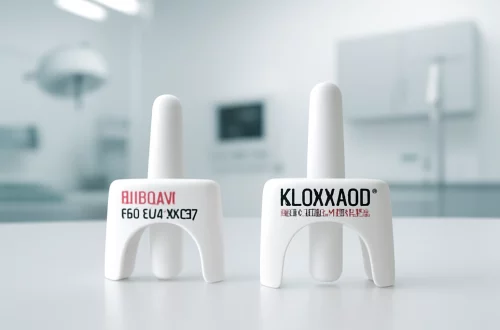
Natural Treatments for Dog False Pregnancy You Should Consider
The bond between a dog and its owner is often filled with joy, loyalty, and companionship. However, there are times when the relationship can be challenged by health issues that affect the well-being of our furry friends. One such condition that some female dogs experience is false pregnancy, a phenomenon that can occur after a heat cycle when a dog’s body behaves as if it is pregnant despite not being so. This condition can manifest in various ways, such as nesting behavior, changes in appetite, and even lactation. While false pregnancy is usually not a serious health concern, it can be distressing for both the dog and the owner.
As responsible pet owners, understanding the signs and symptoms of false pregnancy is crucial. It allows us to empathize with our pets and take appropriate actions to ensure their comfort and happiness. Fortunately, there are several natural treatments that can help alleviate the discomfort associated with false pregnancy. These remedies not only promote physical wellness but also enhance the emotional state of our dogs during this time. By exploring various natural options, we can support our pets in a way that aligns with their natural instincts and needs, allowing them to return to their usual, joyful selves.
Understanding False Pregnancy in Dogs
False pregnancy, or pseudopregnancy, occurs when a female dog’s body goes through hormonal changes similar to those of a real pregnancy, even in the absence of actual conception. This condition is most commonly seen in unspayed female dogs, particularly after they have gone through a heat cycle. The symptoms can vary widely, ranging from mild to more pronounced behaviors that mimic pregnancy.
During a false pregnancy, a dog may exhibit nesting behavior, seeking out quiet, comfortable spaces to create a “den.” She may gather toys, blankets, or other items to create a cozy environment, mimicking the instinct to prepare for a litter of puppies. Additionally, changes in appetite can occur; some dogs may eat less, while others may exhibit increased hunger, often wanting to hoard food as if preparing for their pups.
Another common symptom is the production of milk, which can lead to lactation. This can be surprising for owners, as it is a clear indication that the dog’s body is responding as if it were indeed carrying puppies. Emotional symptoms may include restlessness, anxiety, or clinginess, as the dog may feel confused about her condition.
The hormonal fluctuations that lead to these behaviors are primarily driven by the hormone progesterone, which remains elevated even without pregnancy. While false pregnancy is not considered a serious health issue, it can affect the dog’s emotional and physical well-being. Understanding these symptoms and their causes is essential for providing the right care and support during this challenging time.
Herbal Remedies for Relief
Herbal remedies can provide natural support for dogs experiencing false pregnancy. These treatments not only help alleviate some symptoms but also promote relaxation and emotional balance. Some commonly used herbs include chamomile, valerian root, and raspberry leaf.
Chamomile is well known for its calming properties. It can help ease anxiety and stress, which are common in dogs undergoing false pregnancy. Chamomile can be administered as a tea or in capsule form, but it is essential to consult with a veterinarian for the appropriate dosage. This herb can help soothe your dog and promote a sense of tranquility, making it easier for her to cope with the hormonal changes she is experiencing.
Valerian root is another excellent option for calming anxious dogs. This herb acts as a natural sedative, helping to reduce restlessness and promote better sleep. Like chamomile, valerian can be given in various forms, including capsules or tinctures. However, it’s crucial to monitor your dog’s response to valerian, as some dogs may react differently.
Raspberry leaf is often recommended for female dogs experiencing reproductive issues. It is believed to help regulate hormonal imbalances and can support overall reproductive health. This herb is also rich in vitamins and minerals, contributing to your dog’s overall well-being. Raspberry leaf can be given in tea form, but be sure to consult your veterinarian for guidance on proper use.
While herbal remedies can be beneficial, it is vital to approach them with caution. Always consult with your veterinarian before introducing any new supplement to your dog’s diet, especially during a time when her body is already undergoing significant changes.
Behavioral Modifications and Environmental Adjustments
In addition to natural remedies, making behavioral modifications and environmental adjustments can significantly improve your dog’s comfort during a false pregnancy. Creating a calm and supportive environment is essential for helping her navigate this period.
One effective approach is to provide your dog with a designated “safe space” where she can retreat to feel secure. This space should be comfortable and quiet, allowing her to relax without disturbances. You can use a cozy bed, blankets, and some of her favorite toys to make this area inviting. Encourage her to spend time in this space when she shows signs of anxiety or restlessness.
Engaging in gentle play and interaction can also help alleviate some of the behavioral symptoms of false pregnancy. Spend time with your dog, offering her affection and reassurance. Simple activities like short walks, basic obedience training, or interactive toys can provide mental stimulation and distraction from her nesting behaviors.
Avoid reinforcing unwanted behaviors, such as excessive whining or nesting. Instead, redirect her attention to more appropriate activities. If she begins to exhibit nesting behavior, gently guide her toward her designated safe space or engage her in play. This can help her understand that nesting is not necessary and that she is safe and loved.
Additionally, maintaining a consistent routine can help your dog feel more secure. Regular feeding times, walks, and play sessions contribute to a sense of stability, reducing anxiety and restlessness.
Overall, combining behavioral modifications with environmental adjustments can create a nurturing atmosphere that supports your dog through her false pregnancy.
Dietary Considerations for Supporting Your Dog
Nutrition plays a crucial role in your dog’s overall health and can be particularly important during a false pregnancy. Ensuring that your dog receives a balanced diet can help her cope with hormonal changes and maintain her energy levels.
During this time, focus on providing high-quality dog food that contains essential nutrients. Look for foods that are rich in protein, as this macronutrient is vital for maintaining muscle mass and overall health. Additionally, incorporating omega-3 fatty acids can support your dog’s skin and coat health and may help reduce inflammation.
Consider adding natural supplements to your dog’s diet to provide extra support. Probiotics can help maintain healthy gut flora, which is essential for digestion and can alleviate some gastrointestinal discomfort that may arise during false pregnancy. Always consult with your veterinarian before introducing new supplements to ensure they are appropriate for your dog’s specific needs.
Hydration is equally important. Ensure that your dog has access to fresh water at all times. Dehydration can exacerbate feelings of discomfort, especially during hormonal fluctuations. If your dog seems less interested in food, try offering her smaller, more frequent meals to keep her energy levels stable.
Additionally, be cautious with treats. While it may be tempting to provide extra snacks to comfort your dog, too many treats can lead to weight gain, which can complicate her overall health. Opt for healthy options such as carrots or green beans as low-calorie treats.
By paying attention to your dog’s diet and nutritional needs during a false pregnancy, you can help her maintain her health and well-being, making this period more manageable for both you and your furry friend.
**Disclaimer:** This article is for informational purposes only and should not be considered medical advice. Always consult with a veterinarian for any health concerns regarding your pet.




